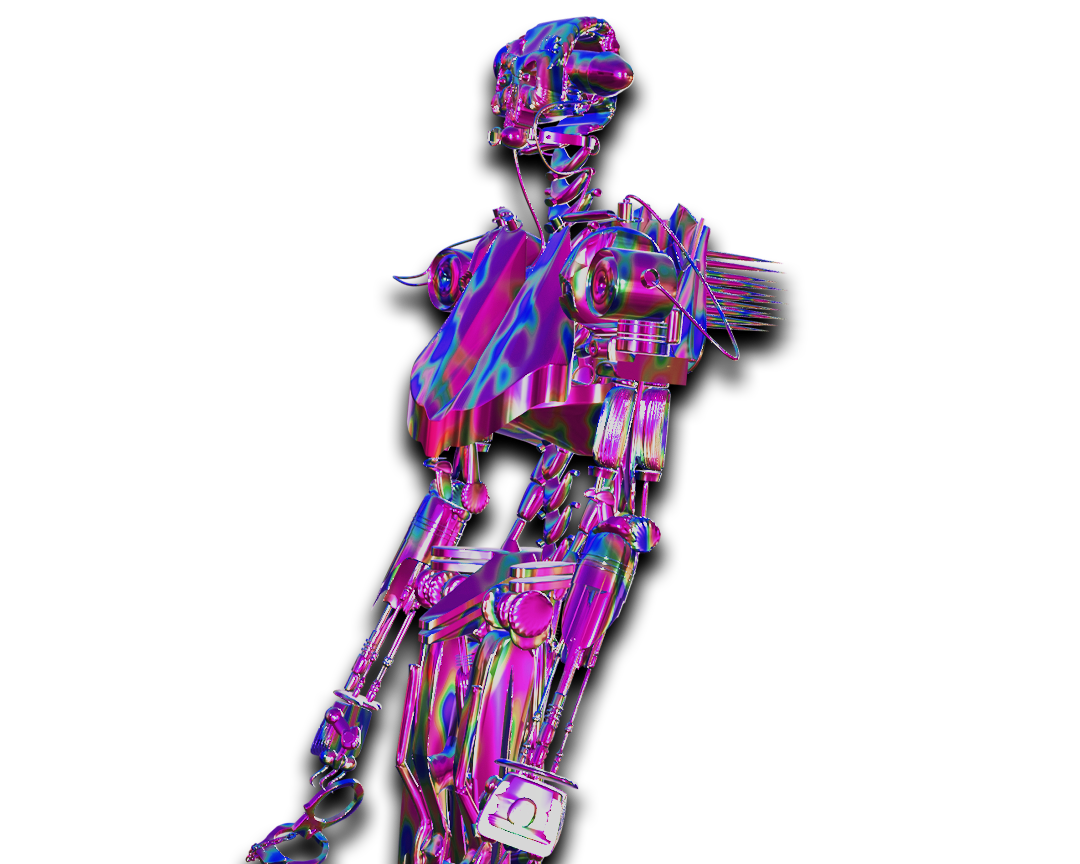E.R. FIGHTMASTER
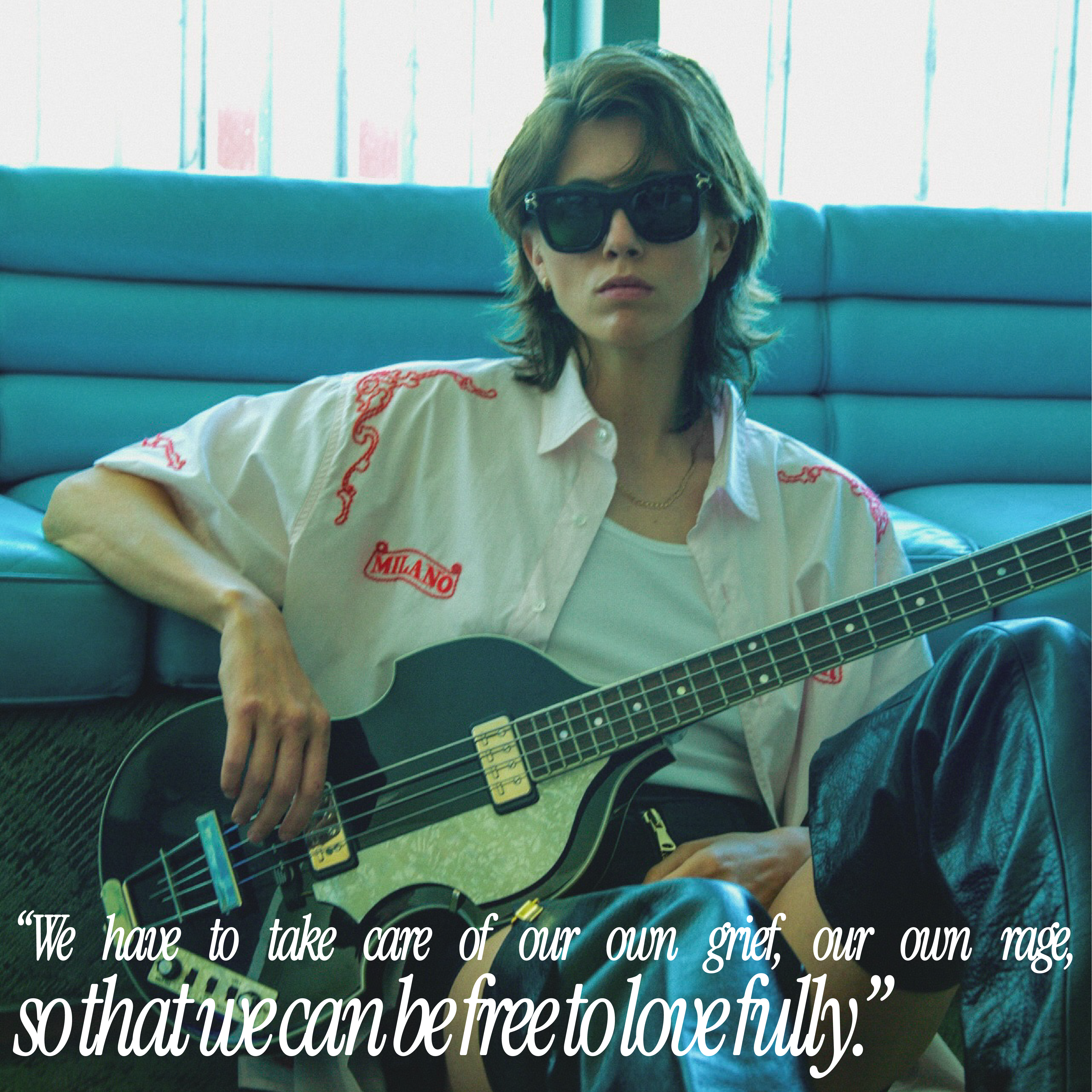
You can’t protect other people unless you know yourself. We have to take care of our own grief, our own rage, so that we can be free to love fully.
Fresh off their debut solo EP, Violence, FIGHTMASTER doesn’t seem to be wanting to slow down, as they get ready to release their second EP in less than a year. Tempting as it might be to try to work a pun in here, I’ll spare everyone and say this: you absolutely should listen to them.
Violence, a 5-song project, showcases Fightmaster’s knack for an indie-rock tune. The songs, co-produced by Riley Geare, express a wide array of musical influences and sensibilities. The gritty opener, Bad Man, kicks the door down on a powerhouse performance of catchy hooks and witty, charming lyricism. From tunes like Cowboy Tumbleweed to the climactic title-track Violence, there isn’t a dull moment on the record, as Fightmaster explores the feelings associated with a budding romance.
While the songs on Violence deal with interpersonal themes, Fightmaster’s songwriting really shines in their new EP, Bloodshed Baby, as they tackle both internal turmoil and systemic issues in a powerful reflection that is at once invigorating and heart-wrenching. It’s clear even from the visuals that this is a more personal project; where Violence and its accompanying visuals show environmental shots that set a mood and work as worldbuilding that keep the singer-songwriter enigmatic, Bloodshed Baby – both the album and all the associated singles – frame a toddler Fightmaster, picking up a toy guitar, with a big smile and a thumbs up. Songs like Emmett, a deeply personal and conversational song wherein E.R. speaks to their father, are contrasted with anthemic rallying cries to the queer community like their most recent single, BRICK X BRICK. Yet, there is a surprising level of cohesion and storytelling for such a wide-reaching project, due to the sheer rawness and honesty in the EP.
Bernardo Alves, writer, critic, and visual artist, sat down for a talk with the multi-hyphenate performer about their two EPs, their progression from sketch comedy into acting and music, and what spiders are the hottest – among other things.
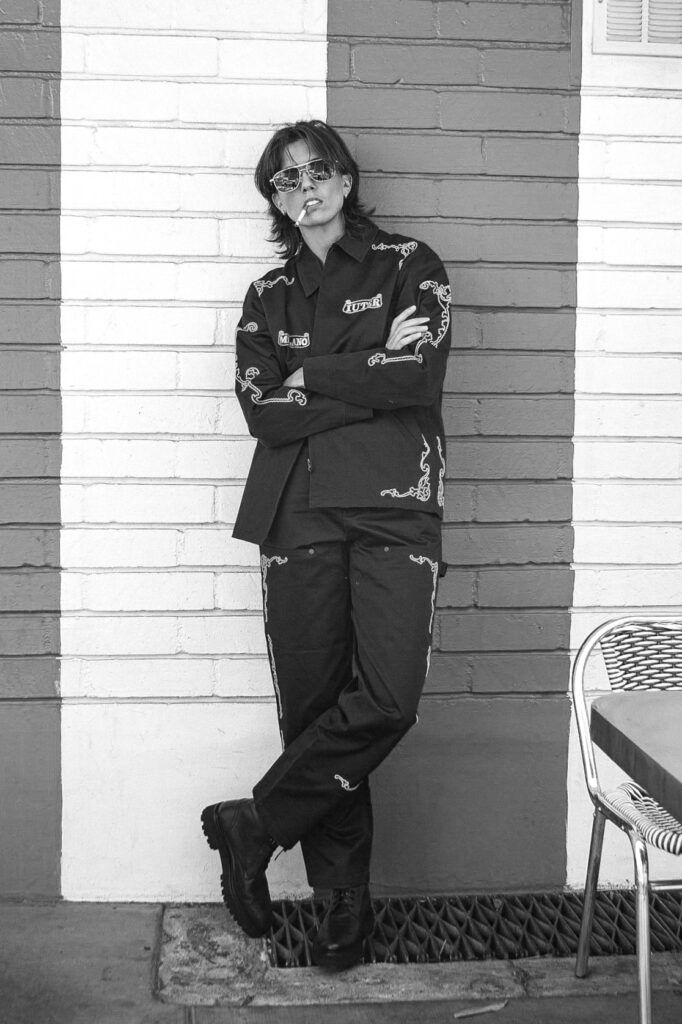
Bernardo Alves: We talked a little bit about how it feels like a very different tonal experience from Violence, and you already kind of explained where that comes from and what inspired tonal shift. On a conceptual level, though, what would you say is the overarching idea of the EP?
E.R. Fightmaster: That there’s no justice in the system, and we have to experience righteous rage and grief so we can process it and move on to freedom. That’s it, very simply said. In Teahouse one of the lyrics is “where grief meets freedom there is love,” and it’s true. I think that – using queer people as my example here – there’s so much grieving that we have to do about being constant recipients of violence, actually not being what our parents expected, having to imagine (really, build) what our life is gonna look like instead of being told what it’s gonna look like. There’s a little bit of grieving that ease that heteronormative people have. You grieve that.
Then you have to come to terms with the fact that the system’s not going to work for you: the system does not care about you, and if you cut all your hair to be more masculine as a man, they’re still going to know you’re gay. If you do all these things to fit in with them, they’re still going to know you’re a dyke. The system knows, and it’s going to find a reason to other you and punish you. So fuck the system. Go find your people.
It’s important to experience rage. If you’re not experiencing rage, you’re not experiencing empathy. It would be impossible to see what’s happening with Palestine, and not feel rage unless you’re completely and totally tuned out. It’s really centering grief and rage as more positive emotions. They’re positive experiences – it means you’re tuned in.
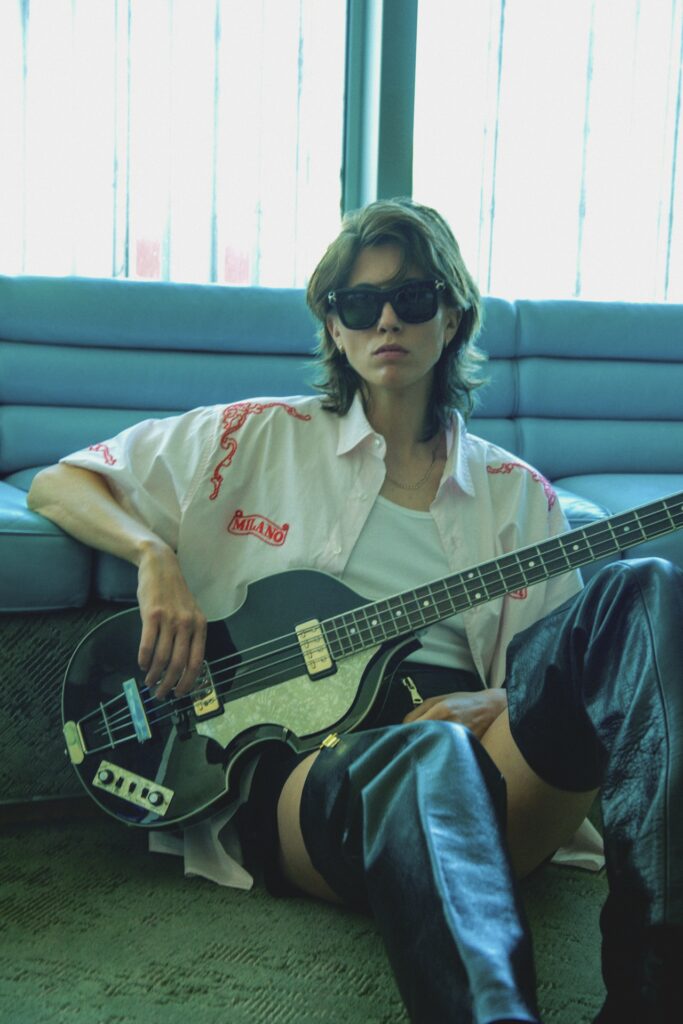
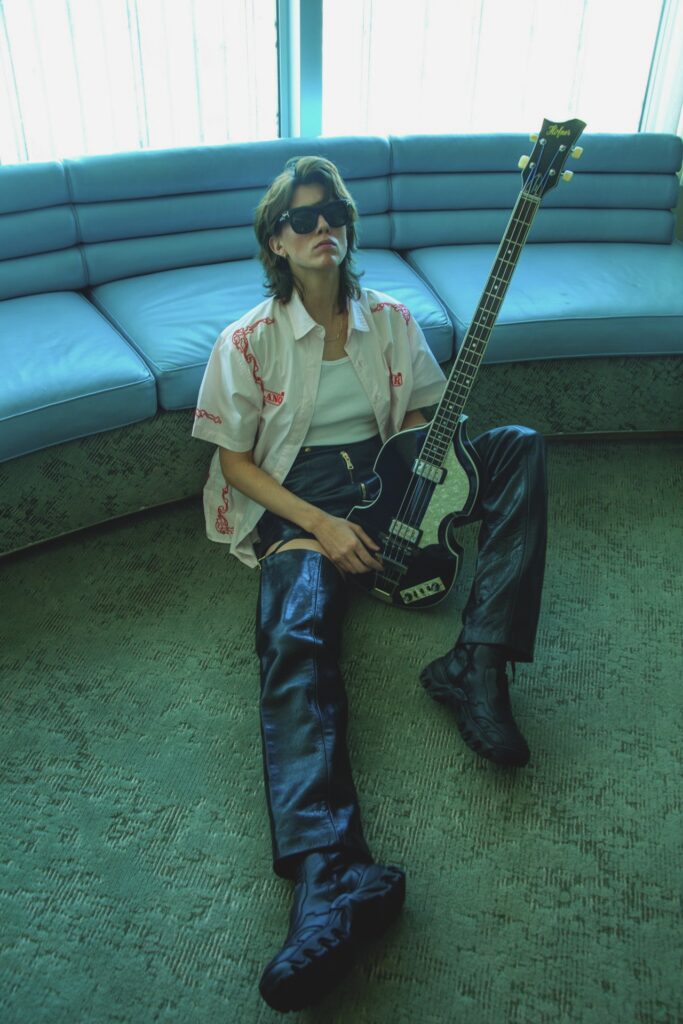
BA: There’s a sort of echo of what you were talking about with violence: getting to grips with how you have to encompass the whole experience to fully understand it.
ERF: We get so much propaganda pushed at us about, you know, the rainbow flag, and experiencing happiness, and just being so proud, and being so proud. They’re taking militancy away from us, and that’s actually what the queer community is good at. We need that militancy. We need to protect ourselves and each other, and we need to protect other communities – that’s also part of our responsibility.
You can’t protect other people unless you know yourself. You have to go in, and you have to do the work. Sometimes that’s going to be a grieving process, but, on the other side of that, you are going to experience this freedom that allows you to love better. That’s the thesis: we have to take care of our own grief, our own rage, so that we can be free to love fully.
BA: I think the song Emmett is a super super powerful song, because it feels like a dialogue with your dad, but it’s also about reckoning with your identity and pleading with him to understand. And it feels almost elegiac, which does tie in with some of these same ideas of grief. It’s such a powerful moment on the album, that it’s hard to try to concisely frame everything that that song does. It feels simultaneously like a cry to be seen as who you are, but also an understanding of the gap that there is to bridge to have that understanding.
ERF: It’s yearning. The song is about grieving, and the song is about mourning, but the song’s really about yearning. To make it really broad, outside of my experience, there are so many ways in which we miss our parents, we miss each other – you know?
I have found that in playing Emmett for other people, that is one that’s taking on a really universal quality where everybody has some kind of ache with family. In my instance I lost a lot of time with my dad, and so the song is really about reckoning with the fact you can’t get that time back. There’s a lot of pain there, but the song made me feel really reconnected to my dad because somehow in writing it I could feel both of our humanities really honestly.
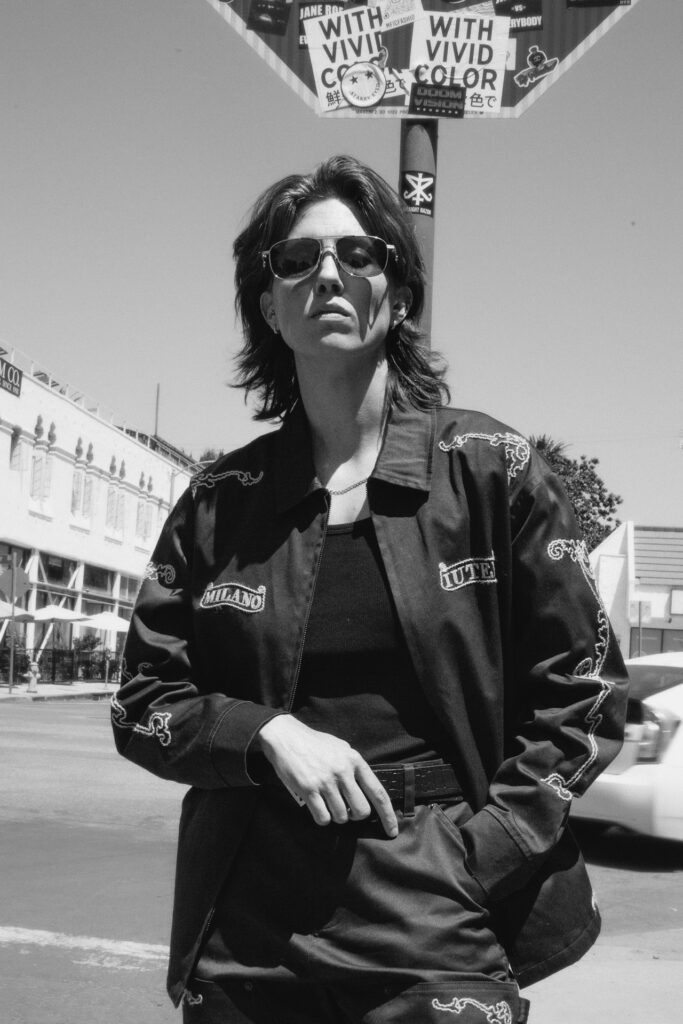
I talk about Aesop’s fables and some Greek mythology in that song; I remember there’s this one Greek story where a king sends his son off to war. He says, “You know, I will be waiting for your ship. When you come back into the harbor, make sure that you have white flags down, so that I know that you’re alive. If you keep the other flags up, I will know that you’re dead.” Then the son comes back from this long journey, and he’s bringing his ship into the harbor – but he does not put the white sails down. And the father kills himself. It’s a horrible story about misunderstandings, and yearning, and missing, and love, and that feels really honest to me.
We’re not our parents and we’re not the same people, but we want the same thing: we want connection. It’s like any other stranger off the street, we’re not the same and so it’s so possible for us to miss each other, but we still want to be here. The end goal is still to love.
BA: I’ve heard you say in other interviews this thing about when you came out as bi and then eventually as a lesbian to your mom, that you felt like her reaction was icy and distant, and that when you guys revisited the subject years later that she was just trying to reframe your life in hindsight and looking towards the future. And you mentioned how, in retrospect, you wish you had had more grace towards her, understanding where she’s coming from as well. To me, Emmett speaks to that same sort of idea.
ERF: I think you’re right. You have to have grace for their grieving process, too. They didn’t expect that. Sure, we can be like, “Oh, fuck them. They should have all the tools,” – but they don’t have the tools. We don’t have all the tools. Nobody has all the tools.
So if I’m giving them a bunch of information that’s going to change their entire understanding of what they thought the world was going to look like, I have to give them the space to grieve that. I have to give them the grace to do that, just like I was giving myself privately the grace to explore all of these thoughts.
To my mom and dad’s credit, when I came out as non-binary they were both like, “Yeah, sick, okay.” I think it’s because I’d given them the grace earlier, then as I explored my identity and I kind of told them every step along the way, so by the time we got here they’re like, “Yeah, sure, whatever, fine, whatever.”
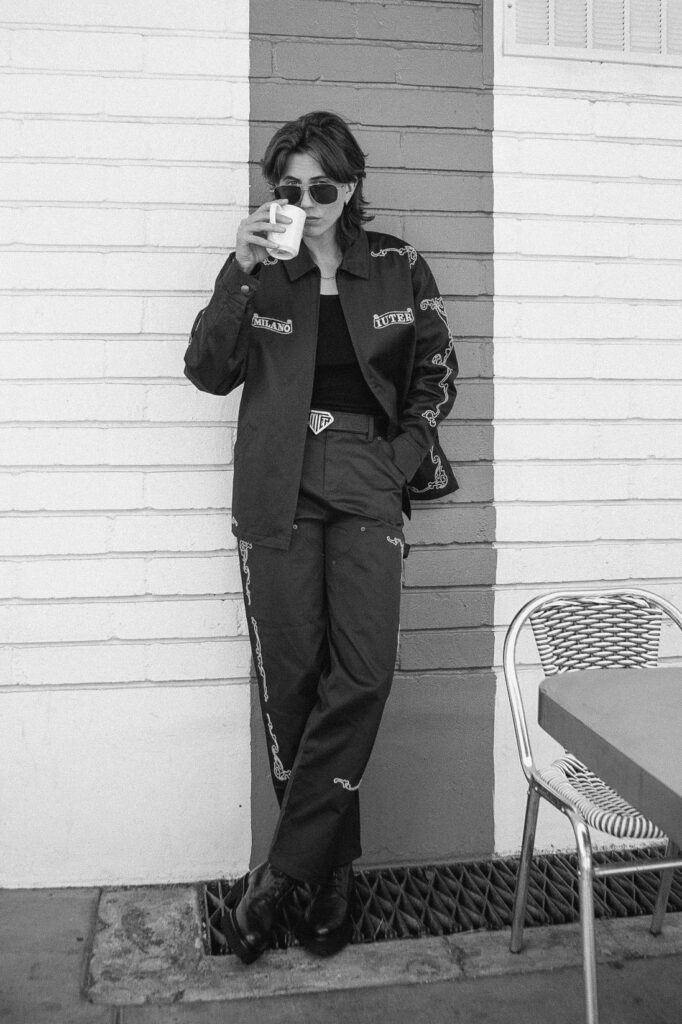
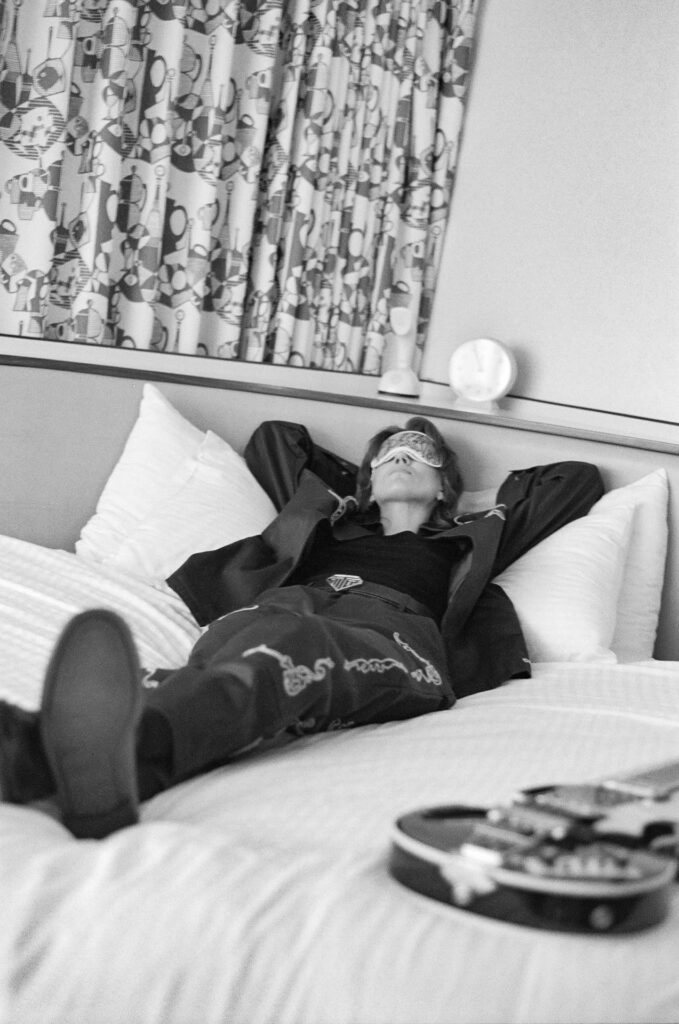
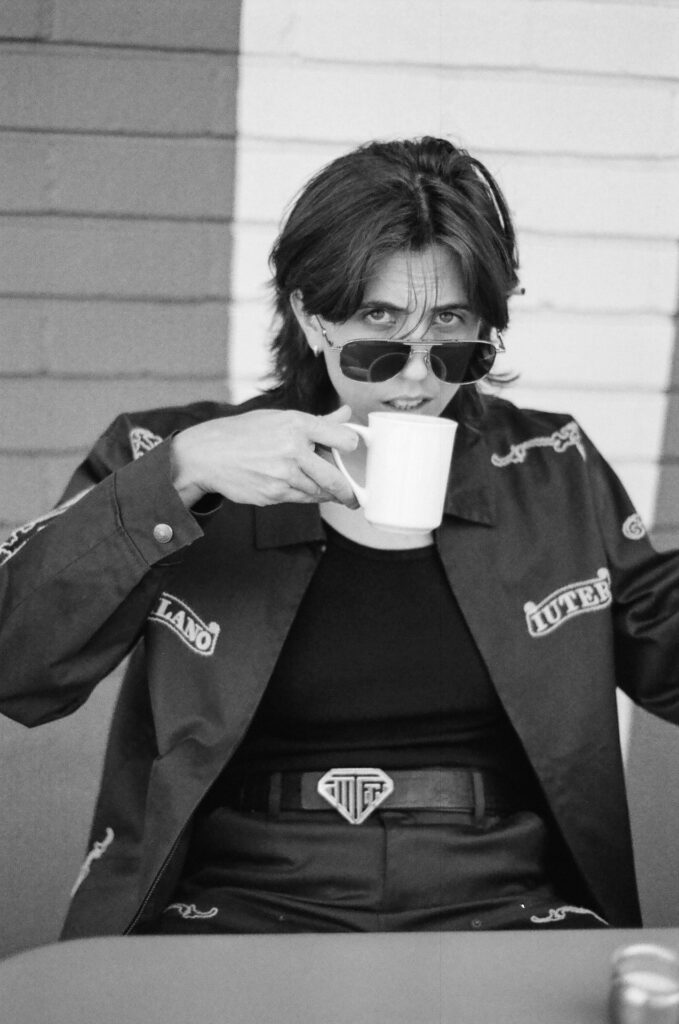
BA: I think Bloodshed [Baby] as an EP has an interesting sort of pacing to it as well because you start with Bloodshed Baby and then Tsunami. To me Bloodshed [Baby] feels very anthemic and then Tsunami is a little bit more like meditative, and introspective. Then you go up again with Brick by Brick and then back down and in again with Emmett. And, then you have the sort of denouement of Teahouse to wrap things up. I think it makes for an interesting listening experience because it is almost like you present these ideas that you’re wrestling with, and then you have to take a breath and deal with the aftermath of having had all these sorts of feelings and emotions. Then you recover and you get riled up again and then you have to sit down and heal again.
ERF: That’s a great way to put it. It’s a little bit like mania and then collapse, mania, collapse. But it’s honest. You tackle this big thing and you rally – it’s like performing for an audience, it doesn’t matter if you’re having a bad day you go out there and you give them the best show possible. A song like Bloodshed Baby is me going to the queer community and saying, “We need each other. We have to work together. We can do this if we work together.”
But, yeah, then I’m going home, and I’m taking my jacket off and I’m lying on the couch for 10 days. That’s Tsunami. And then you get riled up again. Your language is perfect: that is exactly how the whole album felt. It’s like projecting these great themes of bravery – the bravery that we need to see – and then internally being kind of spent and destroyed. That’s why I added Teahouse at the end of the EP because I wanted a moment for people to be able to breathe.
BA: It does feel like a very good closing track as well, in that sense, because it is almost like, “Okay, let’s remember to ground ourselves, and despite all these big themes that we’re having to deal with, be able to like sit and enjoy the freedom and love with the grief.”
ERF: Yeah, there is a light at the end of the tunnel. We’re in a constant war and humanity has been in constant war for as long as we’ve existed. Thinking that there’s going to be a time period where we’re no longer being subjugated and we’re not going to be fighting is ridiculous. You have to find your own peace, and that can be inside of your immediate community or inside of yourself – but it exists.
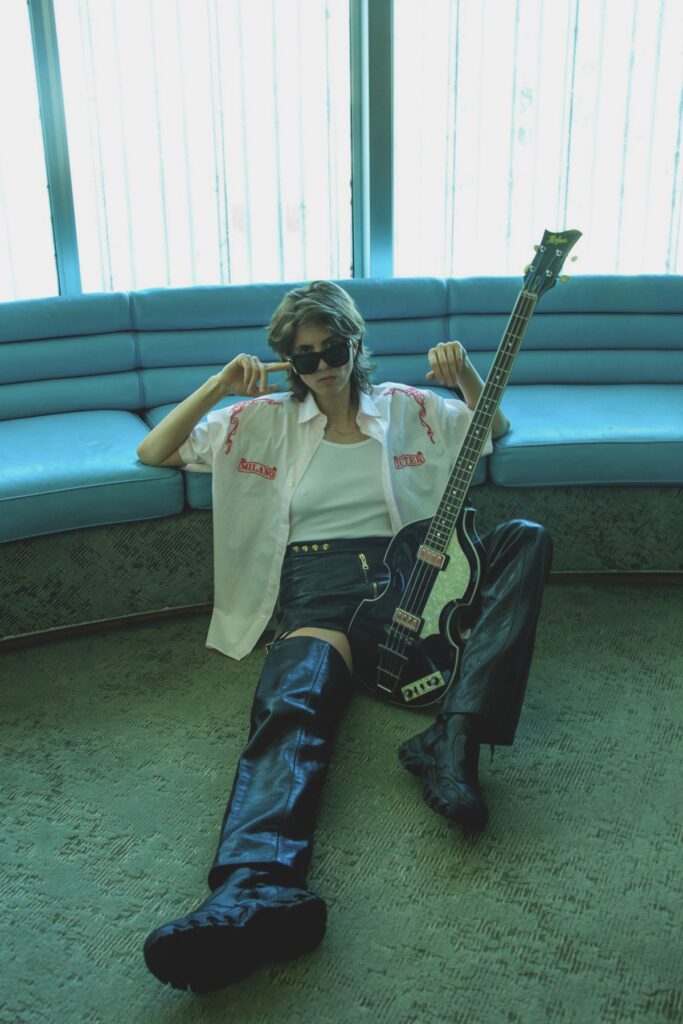
BA: I’m happy that you said Bloodshed Baby and Tsunami like are kind of a pair because that is really how I felt [about them]. Even with some of the imagery that you wrote into it: Bloodshed Baby talks about like sharks in the water, and then about the idea of drowning and stuff; and then Tsunami like sort of revisits that same kind of imagery, but with the feeling that it’s like this wave is about to crash but you’re still on dry land.
ERF: You’re good, you know? You did a good job. It feels so nice to have somebody like really listen to it. The thing about music that is interesting – that is kind of crazy – is you make these things you feel all this emotion and you make this song, and then you go create it; then you wait a year to put it out and you can’t exhale until it’s gone. When Tsunami came out the other day, I started crying in my car, – and then I had a great week, but – it was like, “Oh, fuck.” You’re carrying a weighted backpack until the song is released; then people get to interact with the song and so you get to actually process. But you’re not processing until other people interact with it.
BA: Do you feel like by performing them live you’re able to sort of spread out that emotion a little bit, or get rid of some of that weight by seeing the audience interact with it as well?
ERF: I get to see it become catharsis for people, and that feels cool. Even Violence, which does not seem like a super cathartic album, was because queer people don’t get to see themselves really that often. In these rooms where [there’d] be a very, very gay audience having this real release – this sexual release, this audio release – and it made me love those songs. Really, love them in a different way, because I was seeing their effect on people.
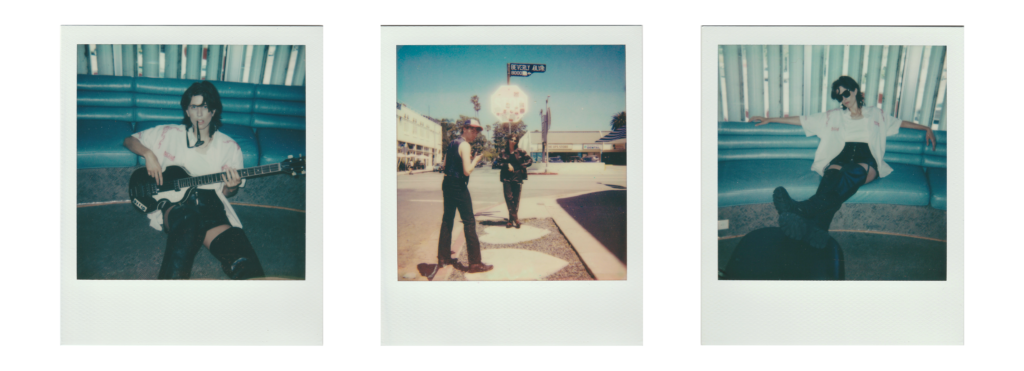
I’m excited to do Bloodshed [Baby] with an audience because I think I need it. I think I need to love these stories and these feelings, and sometimes they sit in me. Tsunami has a little bit more self-loathing in it than I would ever be honest about normally, you know? And there’s a lot more talk about mental health than I think I would be open about. So I want to see that affect people so that I can kind of have grace for myself.
BA: Okay last question – and bear with me with this one – I read an essay a while back by Mary Oliver called “Swoon” about a spider that she sees in her house, and the whole piece she’s sort of meditating on the spider’s life in relation to her own. And she watches the spider eat, and move around, and build her web, and have her hatchlings and refuses to ever kill it. How is your relationship with your spiders? Because I saw you did three whole TikToks on them. Are there any updates on the spider saga?
ERF: First of all, I found one of the spiders – I found her dead body – and it was devastating; I knew it was her because she was furry.
BA: Oh no! Was that the one you had a crush on?
ERF: Yeah, she was fine. I can’t. She was hot. She was thick, like she wasn’t these skinny fuckers that are just like hanging around. Being so tall, I don’t want to date myself, you know what i’m saying? So I’m not looking for a daddy long leg, I am a daddy long leg. Yeah, she’s dead now.
You know, it’s not the Mary Oliver poem, but there’s this poem that I sent my partner a while ago. I was just crying and crying because it was this poem about seeing a spider and killing it and apologizing retroactively, saying like, “I’m sorry that my fear got in the way of your life.” I was weeping because I was like, “Oh my god, the amount of spiders I’ve sucked into a vacuum.” They’re just building a little nest in the corner that I never use, and I’m like, “Kill it! Kill it!” And they have no idea why I’m so upset. They’ve never once harmed me, so I don’t know why I’m like this you know they just freak me the fuck out.
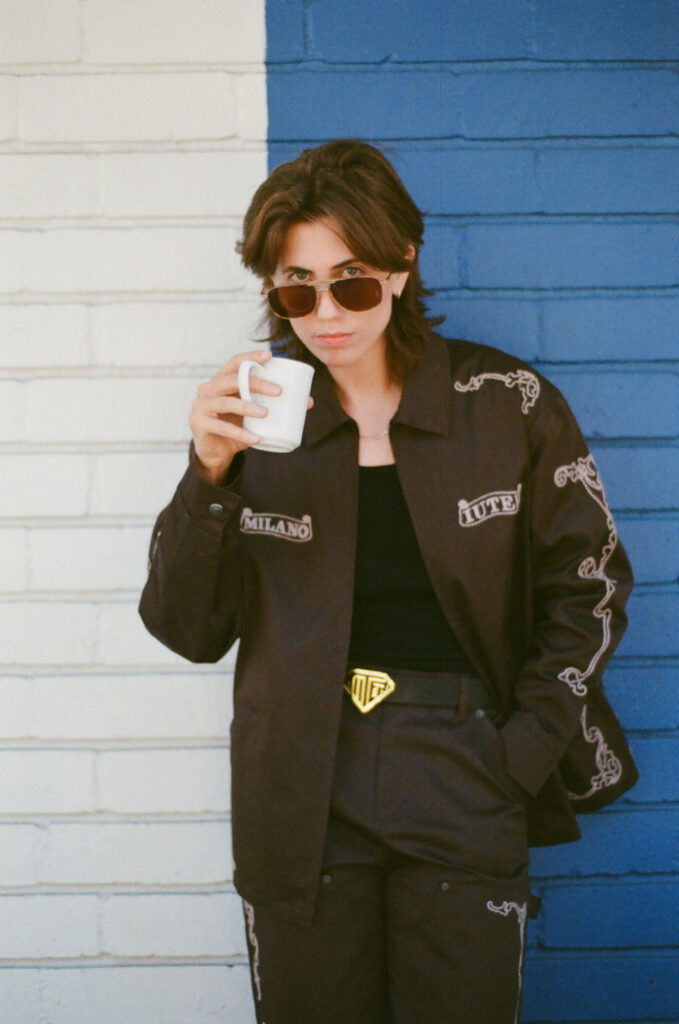
BA: I think that’s natural though, like at the end of the day I think most people are kind of freaked out by creepy crawlies.
ERF: But it’s the spiders that I actually think have thoughts and feelings. The rest of the bugs that ever come into my house, I want to harm them. I want their family to fucking know. You know silverfish? Silverfish are the ones where I’m like, “You came here to hurt me, so I’m gonna hurt you,” where spiders they’re like, “Hey, we actually were here first, go ahead and put your stuff anywhere – we’re gonna kind of make like a nest on it, but we’re not gonna we’re not gonna fuck with your shit.” Silverfish are like, “Hey, I’m gonna hide in your hairbrush…” – Yeah, don’t send me down this pathway because I’ll talk to you about killing bugs for a long time.
BA: No worries… I remember one time I’d come back from a party or whatever and opened up the door to my room and saw a huge spider on my pillow. Literally, my first thought was, “Oh that’s their bed now.” Turned the lights off, closed the door, and went to sleep on the couch.
ERF: Exactly! That’s what I’m telling you, if you’re not careful they will start to take over your rent. I would not have moved that spider, but I would never be in that bed ever again for the rest of my life.
BA: That’s all the questions I had, so if you have any more to say about bugs feel free to say your piece now before we wrap this up.
ERF: No, one day you’ll read my manifesto.
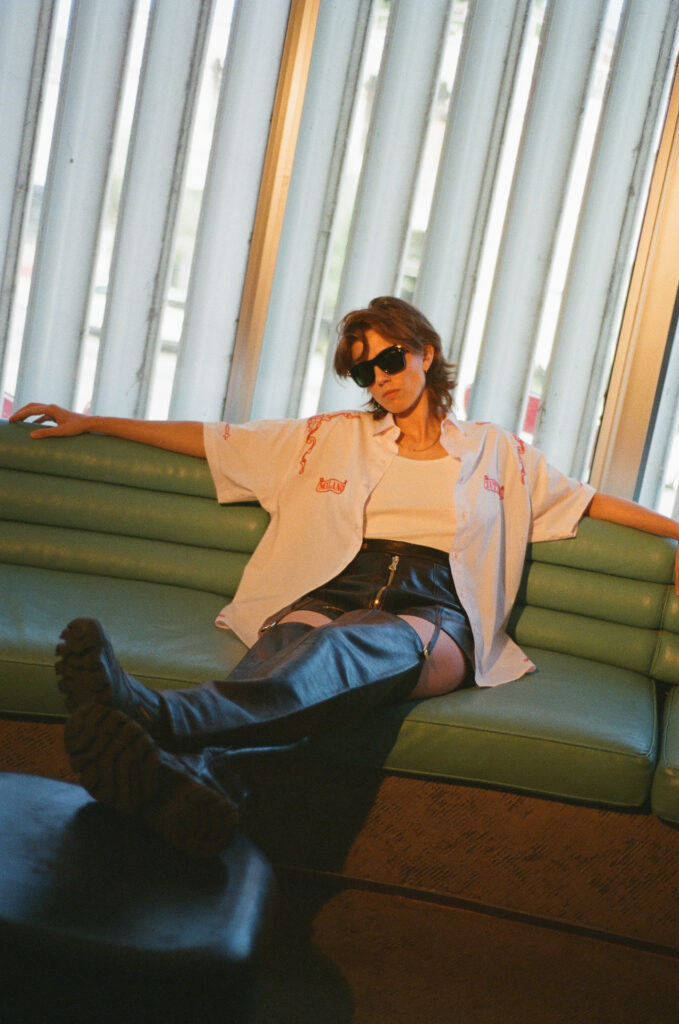
E.R. FIGHTMASTER in conversation with Bernardo Alves
16/05/24
Creative Director and Producer: Simona Coltello @simonacoltello
Photographer and Art Direction: Shane Reynolds @chainreynolds
Stylist: Branden Ruiz @branden.ruiz
Talent: E.R. FIGHTMASTER @genderless_gap_ad
PR: Sarah Coakley @coakleypr and Grace Kinter @gracekinter.wav
Style Credits:
SHIRT, JACKET, DOUBLE KNEE PANTS, SLEEPING MASK and BELT: IUTER
SUNGLASSES: Pucci
PANTS: Jonathan Marc Stein
SHOES: Rombaut and Southern Gents


